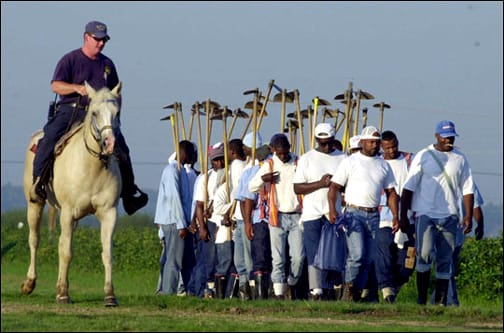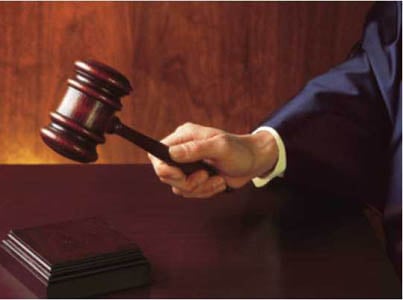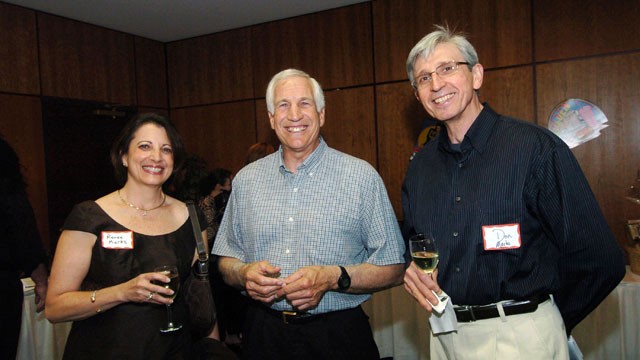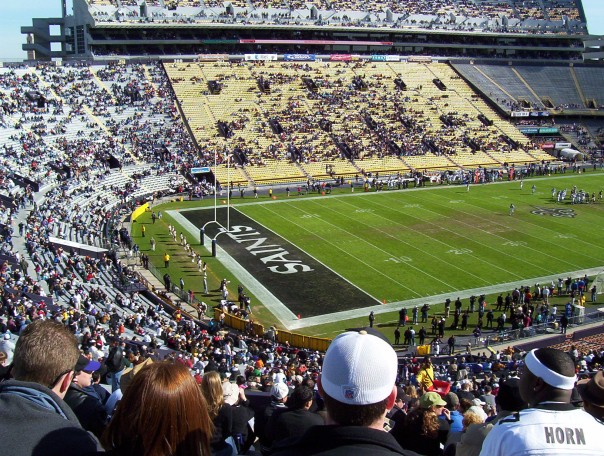 White Privilege and Criminal Justice
White Privilege and Criminal Justice"Privilege is like water to a fish" unrealized and invisible.
"Learn from global struggles, bring lessons home."
- Skype Interview with Jordan Flaherty
 Jordan Flaherty describes on Page 42 of his book Floodlines that he is often reminded of his skin privilege in America. He gives an example of riding his bike through a red light right in front of police. I too have taken advantage of this privilege countless times. I knew whites were treated differently from blacks is different situations in our society but I never knew how clueless I was about the issue until now. Most of my previous knowledge about racial injustice has come from stand up comedy and rap music.
Jordan Flaherty describes on Page 42 of his book Floodlines that he is often reminded of his skin privilege in America. He gives an example of riding his bike through a red light right in front of police. I too have taken advantage of this privilege countless times. I knew whites were treated differently from blacks is different situations in our society but I never knew how clueless I was about the issue until now. Most of my previous knowledge about racial injustice has come from stand up comedy and rap music.Dave Chappelle has a great stand up act about the situation facing African Americans. http://bit.ly/cSZtA
As funny as Dave Chappelle, and the video is, the situation is very serious and very real in cities all around the country. Without coming out as saying this is white privilege, he is describing this given privilege exactly.
Just recently I experienced a similar privilege as Jordan Flaherty describes in Floodlines. I was leaving the Apple Cup in Downtown Seattle. I saw that no cars were passing through the intersection while the "don't cross" sign was on. I ignored the sign and walked directly by a Seattle police officer in the cross walk like nothing was wrong. The officer barked at me, "what are you doing? The cross light is red!"
 I had a little liquid courage in me and I did the Will Farrell from Old School http://bit.ly/uAVa3z.
I had a little liquid courage in me and I did the Will Farrell from Old School http://bit.ly/uAVa3z.As if I had no idea as why she stopped me, I acted stupid and replied "Everyone is doing it." I looked back and no one was walking with me, I then apologized. The officer gave me a few quick words and sent me on my way. Typical response for me, I have no fear of J-Walking in front of police but this is not the case for everybody.
This may seem like a normal slap on the wrist for an average white citizen in Seattle but this is not the same way blacks are treated in my community. Just last year a policeman was caught on video punching a young black woman for J-Walking on the South side of Seattle.
http://bit.ly/rYTGuf
Not only are blacks treated differently in Seattle so too are Hispanics http://bit.ly/cb4Nke.
Minorities are not the only ones being beaten but it seems like anyone who fits the description, tan skin wearing a Jersey, is beaten for J-Walking. One of my best friends' little brother was beaten for crossing the street, without looking, on his cell phone. And this was in his own, mostly white, neighborhood of Queen Anne. http://bit.ly/ckF1TS
 So why are we seeing minor offenses like J-walking turning into violent beatings by the police? Yet in other more serious cases criminals are treated with respect and are often given the benefit of the doubt. And why do I have a pass to break some of these minor offenses when minorities are targeted for the same crimes? Maybe its as simple as a few bad apples on the force, or maybe it has to do with how I talk to the police, but for some reason I can't help but think race and class are playing a role.
So why are we seeing minor offenses like J-walking turning into violent beatings by the police? Yet in other more serious cases criminals are treated with respect and are often given the benefit of the doubt. And why do I have a pass to break some of these minor offenses when minorities are targeted for the same crimes? Maybe its as simple as a few bad apples on the force, or maybe it has to do with how I talk to the police, but for some reason I can't help but think race and class are playing a role.Some may point the finger at those who have been beaten, saying that they are arguing, disrupting, not cooperating, or resisting police, but I think race and class are the main reason. Racial stereotypes play a role in the perception of African Americans and other minorities. Stereotypes like these can lead to racial profiling, group think, and other harmful mental states which are causing injustice.
 In the next video the speaker brings up a point about how growing up in white American communities leads to a disconnect with the struggles of African Americans and leads to forms of racism. I thought he had an interesting perspective on the situation, and I admit I too have believed some of the stereotypes and have had racist beliefs. http://bit.ly/rBzTl3
In the next video the speaker brings up a point about how growing up in white American communities leads to a disconnect with the struggles of African Americans and leads to forms of racism. I thought he had an interesting perspective on the situation, and I admit I too have believed some of the stereotypes and have had racist beliefs. http://bit.ly/rBzTl3Looking back in history and around the country this is nothing new, and proof that we have not made as much progress with racism as many whites believe. I think we all know of the Rodney King Trial back in the early 1990s but racial profiling and flat out racism in our justice system are still rampant. I thought this video on Racial profiling would explain more of the injustice not just for African Americans but for all people of color including Middle Easterns. http://bit.ly/jqjPea

"Like water to a fish," I will admit I was partially blind to the injustices in today's law enforcement, mainly because I was never subjected to them. In fact I now realize how often I have benefited form this white privilege when it comes to law enforcement. I have been given the "benefit of the doubt" from police and other forms of authority more times than I can count, all while I was up to no good. I think this is why we see higher crime rates and drug use from white people. http://bit.ly/rIZmcK Tim Wise on how whites see race.
I now understand there truly is a privilege in this country and it automatically comes with being born with white skin. Being born in white neighborhoods, in white communities, with white schools, white bosses, white teachers, white police, and in general the white supremacy idea still lingering. The idea of this privilege is continuously denied by conservative white America and often repeated through media and politics.
Here is a website describing racism in our mass media. http://bit.ly/1ttN7S
Look similar to the Center for Consumer Freedom ad? http://bit.ly/rCobVV
Lets see what Fox News has to say about racism in 2011? http://bit.ly/OcEtF

White people act like affirmative action, employment, and education clauses forcing institutions to hire or accept a certain number of minorities has balanced out this privilege, some even argue that this is reverse racism. But the truth is that White privilege outweighs all of this. Greatly.
Tim Wise: On White Privilege http://bit.ly/uHlup
Towards the end of Mr. Wise's speech he talks about New Orleans and Race. He speaks of the relationship between St. Bernard Parish and the Lower 9th Ward two economical similar neighborhoods. In St. Bernard Parish, the white community blames the black folks from the Lower 9th Ward for their problems. Although the two groups are of similar class, they fight rather than joining to solve the problems that they both face. The white community is conditioned to believe stereotypes rather than organize and fight the people who truly created their problems.
In the quote, with his picture, he speaks of old whites as the "keepers of the hegemonic and reactionary flame." This is evident in the above example where poor whites in New Orleans would rather support whites who take are exploiting them, rather than anybody with black skin.
In the quote, with his picture, he speaks of old whites as the "keepers of the hegemonic and reactionary flame." This is evident in the above example where poor whites in New Orleans would rather support whites who take are exploiting them, rather than anybody with black skin.
 Stereotypes about blacks have lead to denial of this white privilege. Blacks are also blamed for the position they are put into by our society. But how can you blame someone who lives in poverty? They are stuck in a position where they can't win. here is a link to Wise's website. http://bit.ly/vXLYF0
Stereotypes about blacks have lead to denial of this white privilege. Blacks are also blamed for the position they are put into by our society. But how can you blame someone who lives in poverty? They are stuck in a position where they can't win. here is a link to Wise's website. http://bit.ly/vXLYF0 Tim Wise gave some very telling statistics from 2001, "60% of whites admit they believe at least one negative and racist stereotypes of blacks, for example that they are generally lazy, generally aggressive or violent, or prefer to live on welfare rather than work for a living."
 Some people may argue that this statistic is from 2001 and is outdated, but I think these misconceptions are just as bad if not worse in 2011. Many whites also believe that all minorities have the same opportunities but this is also a misconception. Time Wise also points out that "whites often deny the importance of racism in determining the life chances of blacks" I think this denial is an idea that is pushed upon the white community through politics and other avenues. Many whites also see that our President is black and want to think all of their privilege has been stripped away, and that our country is completely fair now.
Some people may argue that this statistic is from 2001 and is outdated, but I think these misconceptions are just as bad if not worse in 2011. Many whites also believe that all minorities have the same opportunities but this is also a misconception. Time Wise also points out that "whites often deny the importance of racism in determining the life chances of blacks" I think this denial is an idea that is pushed upon the white community through politics and other avenues. Many whites also see that our President is black and want to think all of their privilege has been stripped away, and that our country is completely fair now. Here is part one (of ten) of Wise speaking at Eastern Illinois University http://bit.ly/rHLDCM Watch all 10 if you have time. I found the speech very detailed, informative, and truthful.
Here is part one (of ten) of Wise speaking at Eastern Illinois University http://bit.ly/rHLDCM Watch all 10 if you have time. I found the speech very detailed, informative, and truthful.When you look at communities of poverty and communities of color there is no denying that there is a direct correlation between low paying jobs, poor education, poor housing, police involvement and race.
I happened to watch a show last week on Vanguard, called The War on Weed http://bit.ly/rp8f1Y. This show took a look at how the drug is treated as the lowest priority for law enforcement in Seattle but is one of the most common arrests in black communities around the country. In the Bronx NY young blacks are illegally and constantly patted down by police officers. This is a clear case where police are targeting blacks and using tactics that are not used in white communities.
Our country has a history of racism, slavery, and oppression of communities of color but it seem like today's racism and slavery is carried out through our justice system. Its no surprise that outside of one of Americas great black cities, New Orleans, is the largest prison, a former slave plantation. Prisoners, mainly blacks, are now legally forced to work on plantations. http://bit.ly/u8vKS0
The prison system is a billion dollar industry, where it is clear that there is an incentive for police to incarcerate more people. We learned about how in New Orleans, the city jail, OPP is paid through a per Diem funding system. This creates a greater incentive for police to arrest as many people as possible, rather than protecting and serving the community. Police are on the look out for easy arrests and quick money. They are not actively investigating, rather they are looking for minor offenses, by minorities, for which they can create an arrest and generate more profits.

The courts also play a role in this per Diem system because the longer prisoners are incarcerated the more the prisons get paid. The more arrests police make the more court dates are held, the more public defenders are employed, ect. There is a chain of income coming from the incarceration of young black males. Police need to feed their families too, so they just continue operating on the chain arresting people for very minor offenses.


In this video George Carlin preforms his stand up act in the 1980s. Carlin talks about how "Business criminals" in the Ronald Regan era wanted to lock up all of the "street criminals" to make it safer for themselves. http://bit.ly/vu6rPU
 This brings me to the Occupy Wall St. movement and the issues with greed and corruption in our country. These two issues are both part of white privilege because many, mostly white, "business criminals" on Wall St. are not convicted of their crimes.
This brings me to the Occupy Wall St. movement and the issues with greed and corruption in our country. These two issues are both part of white privilege because many, mostly white, "business criminals" on Wall St. are not convicted of their crimes.These men on Wall St. are extorting our country for everything they can grab, and they get away with it because the operate in this community of corruption, loyalty, and white privilege.
 But when you look in the Bronx we see people arrested for J-walking, patted down for nothing, and being illegally taken advantage of. We have seen corruption on many different levels in this country and not just from white men. Enron is a perfect example where we see this community of corruption destroying lives. http://bit.ly/veSmY
But when you look in the Bronx we see people arrested for J-walking, patted down for nothing, and being illegally taken advantage of. We have seen corruption on many different levels in this country and not just from white men. Enron is a perfect example where we see this community of corruption destroying lives. http://bit.ly/veSmYHere is another video describing one case of corruption on Wall St. When I learned about this case I wondered why Raj Rajaratnam was investigated and convicted rather than his white colleagues. The video even says one of his contacts got a deal in exchange for his testimony on Rajaratnam. I understand that Raj is just as guilty as his colleagues but I wonder why he is the only one sitting in jail. http://bit.ly/v5T2nQ
White privilege is also a factor in our court system. In class we learned about what happened to Troy Davis, who was failed by our court system due to "Tunnel Vision" corrupt police, and a justice system with white privilege. In Troy Davis' case it seemed like he was "guilty until proven innocent" and was never given a chance for a re-trial. http://bit.ly/o7tnKg A telling statistic we learned in class is that 70% of those executed in Georgia are African American men. This just goes to show how history is repeating itself.
 Yet every time I hear about the Jerry Sandusky case I am reminded that he is "innocent until proven guilty." Sandusky was able to terrorize his victims through his white privilege. For decades this man got away with more crimes because he was given the "benefit of the doubt" from coworkers and those around him.
Yet every time I hear about the Jerry Sandusky case I am reminded that he is "innocent until proven guilty." Sandusky was able to terrorize his victims through his white privilege. For decades this man got away with more crimes because he was given the "benefit of the doubt" from coworkers and those around him. As I write this blog I cannot help but think about how race has played a role in this case and others. The culture at Penn State was one of white privilege. Tim Wise talks about this danger in his ten piece speech at Eastern Illinois University (above). Wise points out that white privilege is dangerous because whites receive the benefit of the doubt, resulting in them getting away with more crime. He goes on to point out a fact, that almost all modern day serial killers are white males. http://bit.ly/vn2Jmn Is there a coincidence? Ill let you decide...
As I write this blog I cannot help but think about how race has played a role in this case and others. The culture at Penn State was one of white privilege. Tim Wise talks about this danger in his ten piece speech at Eastern Illinois University (above). Wise points out that white privilege is dangerous because whites receive the benefit of the doubt, resulting in them getting away with more crime. He goes on to point out a fact, that almost all modern day serial killers are white males. http://bit.ly/vn2Jmn Is there a coincidence? Ill let you decide...I have noticed already that one Judge had to be changed in the Sandusky case because he was connected to the Second Mile, Sandusky's child recruiting base. Also I noticed Sandusky has been released on bail twice now, both amounts seemed surprisingly low for a case of this magnitude. I wonder how this case will be affected by Sandusky's race and position in the privileged culture that is Penn State.
 In another sexual abuse case, this time in Syracuse NY, Bernie Fine has been accused of committing a very similar crime. Denial by his coworkers, and friends including Head Coach Jim Boeheim are evidence of the loyalty that allows these kinds of crimes to continue to happen and be covered up. http://bit.ly/rGxxVH
In another sexual abuse case, this time in Syracuse NY, Bernie Fine has been accused of committing a very similar crime. Denial by his coworkers, and friends including Head Coach Jim Boeheim are evidence of the loyalty that allows these kinds of crimes to continue to happen and be covered up. http://bit.ly/rGxxVHAlthough these two men have not yet been found guilty in court, there is a similarity between they way in which these organizations have operated and allowed this behavior. I am not writing about this to point fingers but I think there is a lesson about white privilege and racist loyalty that everyone should learn. The color of ones skin should not grant anyone privilege, especially in our justice system. As a country we need to join together rather than separating.

One last lesson from one of my old managers at work. "Assholes come in every color" This quote meant that skin color dosn't matter and stereotypes are not true. White people are just as evil and just as good as any one other group of people. The same goes for any group of people Middle Easterns, Blacks, Hispanics, Asians. We are all created equal, but in America we are not treated equal and that is where our problems lie.




























